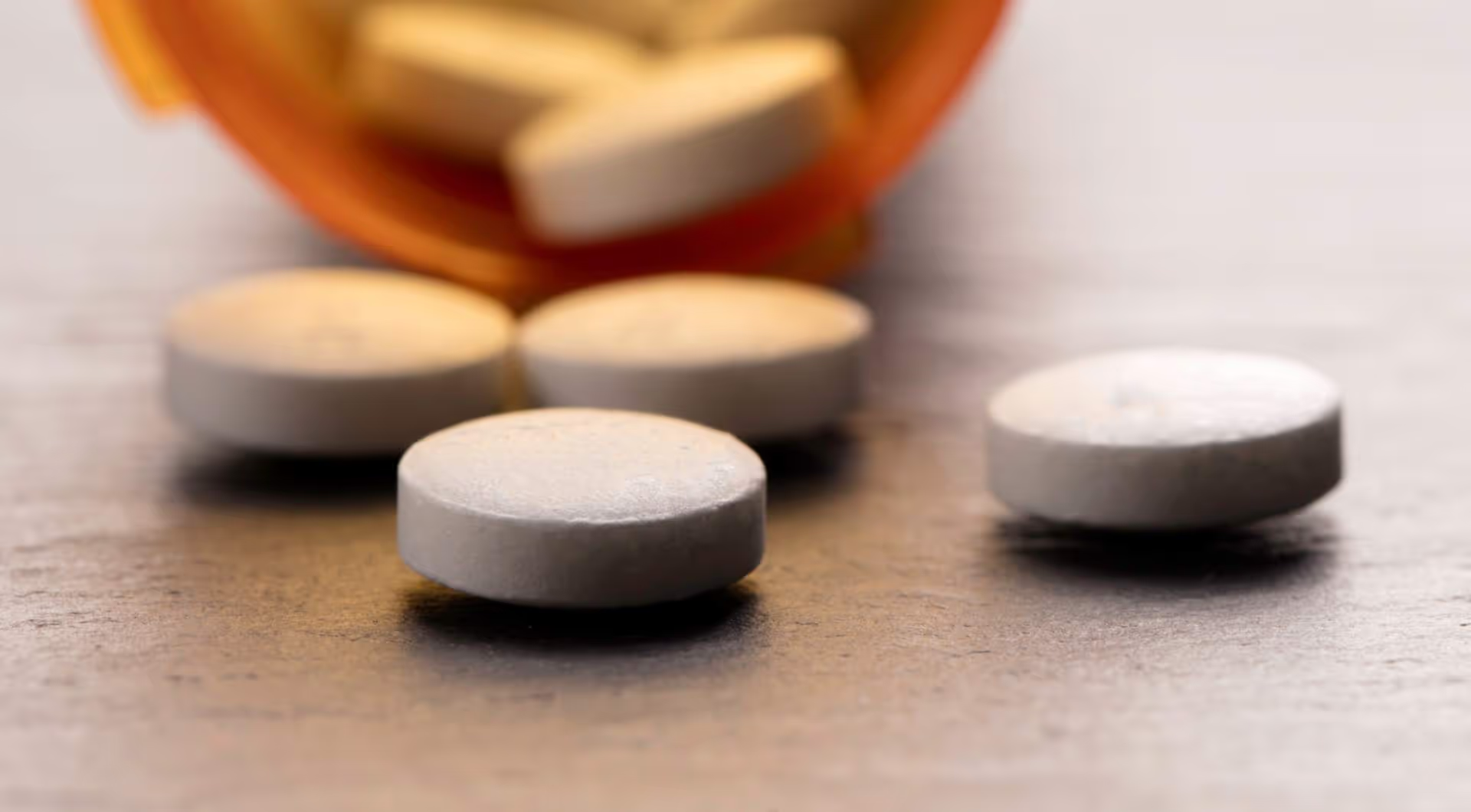Can You Drink on Aspirin? Risks and FAQs

Your friend asks you out for a drink, but you just took an aspirin for a headache. Do you hesitantly express your misgivings about taking the two together, or do you shrug them off and accept the invitation immediately?
In either case, it’s important to understand the real consequences of combining aspirin and alcohol. On one hand, you don’t want to hurt your friend’s feelings by rejecting the invitation; on the other, you don’t want to bring yourself harm.
Arm yourself with knowledge to solve this dilemma. Dove Recovery delves into the effects of drinking and taking aspirin, providing tips so you can make the wisest decisions regarding your health.
Table of Contents
- Can You Take Aspirin After Drinking?
- How Soon After Drinking Can You Take Aspirin?
- 4 Possible Risks of Taking Aspirin After Drinking
- Commonly Asked Questions About Taking Aspirin After Drinking
- Tips for Safely Taking Aspirin After Drinking Alcohol
- Dove Recovery Offers Alcohol Recovery Programs in Columbus, OH
Yes, you can drink alcohol while taking low-dose (usually 81 mg) aspirin, but it’s important to note that it may cause side effects. How frequently the two are taken together must also be considered.
Dove Recovery is concerned for the sustained health of its patients. We encourage you to contact us for assistance with developing a safe and sustainable routine regarding the use of medicines and alcohol.

Ideally, one should not take aspirin until the alcohol has had a full 24 hours to metabolize. Many factors, however, contribute to the speed with which the liver metabolizes alcohol. These include:
- Your age and gender
- Your body weight
- Your health status
Anything that slows down alcohol metabolism indicates a need to wait longer after drinking to take aspirin.

#1: Gastrointestinal Bleeding
Both aspirin and alcohol act as blood-thinners and increase a patient’s risk of bleeding, particularly when the substances are used chronically. Drinking even one drink a day while taking aspirin results in a 37% increase of gastrointestinal bleeding.
Gastrointestinal bleeding can occur anywhere along the GI tract, but the upper GI tract is the location most commonly associated with the combined consumption of aspirin and alcohol. The risk of upper GI bleeding in users of aspirin is increased among all who consume any amount of alcohol, but greater in heavy drinkers.
Symptoms of GI bleeding include:
- Vomiting red or black blood
- Bloody or black stool
- Abdominal or chest pain
- Lightheadedness or fainting
- Difficulty breathing
If you experience any of these symptoms after consuming alcohol and aspirin, you should seek medical help immediately, as it may be life-threatening.
#2: Hepatotoxicity
The liver works to break down alcohol into water and carbon dioxide so it can be safely eliminated from the body. This process involves more or less harmful intermediate substances, including acetaldehyde and acetate.
Acetaldehyde, highly toxic and carcinogenic, is very short-lived, but any hindrance to alcohol metabolism may slow down its conversion to acetate and allow it time to wreak damaging effects on the liver.
Aspirin undergoes a similar process. The intermediate substance, salicylate, can cause hepatotoxicity when not eliminated quickly enough, as is the case during an overdose of aspirin or when metabolism is hindered by simultaneous alcohol metabolism.
#3: Peptic Ulcer Disease
Chronic use of non-steroidal anti-inflammatory drugs (NSAIDs), which include aspirin, are a common cause of the development of peptic ulcers. This is because they wear away at the lining of the stomach, and stomach acid irritates and inflames these sores, creating a peptic ulcer.
Heavy alcohol consumption also erodes the stomach lining, contributing to the development of ulcers. Furthermore, patients with peptic ulcer disease are more likely to experience negative symptoms when they drink alcohol.
Though peptic ulcer disease is sometimes asymptomatic, detectable symptoms include:
- Pain or discomfort in the upper abdomen
- Quickly reaching satiety
- Nausea and vomiting
- Belching
- Bloating
#4: Nausea and Vomiting
When the two toxins (alcohol and aspirin) are combined, their breakdown is slower and their effects intensified. Besides causing or aggravating ulcers, alcohol and aspirin taken together can lead to stomach upset, nausea, and vomiting.

How Long Should You Wait To Take Medicine After Drinking?
While there’s no rigid rule, most healthcare professionals suggest waiting at least 24 hours to take aspirin, or any other medication, to avoid negative interactions.
Discuss with your doctor or pharmacist how alcohol could interact with any underlying health conditions you might have or medications you are currently taking.
Is One Age Group at Higher Risk When Taking Aspirin After Drinking?
Elderly individuals are at higher risk of the adverse effects associated with consuming both aspirin and alcohol. This is because:
- Liver and kidney function decline with age, making metabolism and excretion less efficient. As a result, smaller amounts of the substances can cause greater damage.
- Underlying health conditions requiring chronic aspirin use are more common among the elderly.
Can You Overdose on Aspirin and Alcohol?
While you can take aspirin after drinking, either substance can be taken in amounts too large for safe elimination from the body. These amounts are not the same for everyone, so it’s important to understand your current health situation.
An overdose of alcohol, aspirin, or both together can be severe enough to cause death or a coma, so immediate medical attention is critical if overdose is suspected.
Prioritize your safety by following these tips:
- Limit alcohol intake to one or two drinks per day (one drink per day for women, two for men).
- Follow the dosage recommendations when taking aspirin. Keep in mind that regular aspirin is 325 mg, four times stronger than low-dose aspirin.
- Space out the use of aspirin and alcohol as much as possible.
- If you take a prescription containing aspirin or have an underlying health condition, discuss the safety of drinking alcohol with your doctor.
Healthcare providers often recommend daily aspirin for such health conditions as heart disease, a recent heart attack or stroke, or diabetes. If you must take aspirin, it is all the more important that you moderate your alcohol intake. This can be very difficult if you have alcohol use disorder.
Dove Recovery offers support for patients seeking freedom from alcohol addiction, among other types of addiction. Other drugs, such as cocaine, are also known to interact dangerously with aspirin. Whatever your substance use issue, our compassionate care team will serve you from our luxury rehab center to give you the treatment you need.
Our treatment options include:
- Regular or intensive outpatient programs
- Partial hospitalization program
- Counseling and therapy services
- Ambulatory detox
The goal of these programs, beyond medical support, is to help our patients reach the point where they can positively cope with abstaining from alcohol (or other substances) and avoid relapse. Dove Recovery’s care is evidence-based and personalized according to each patient’s particular needs.
Call us today to learn how we can guide you in your journey toward sobriety and health safety.

